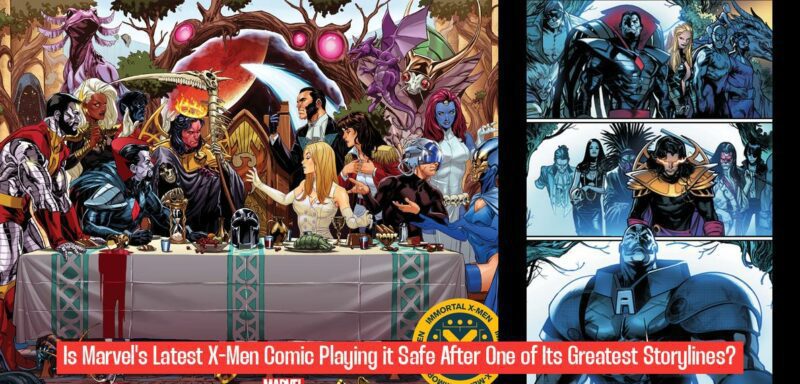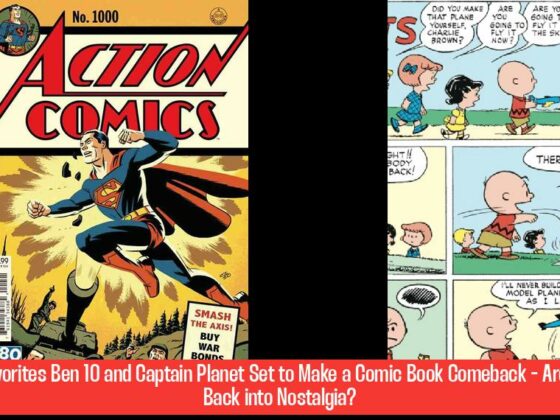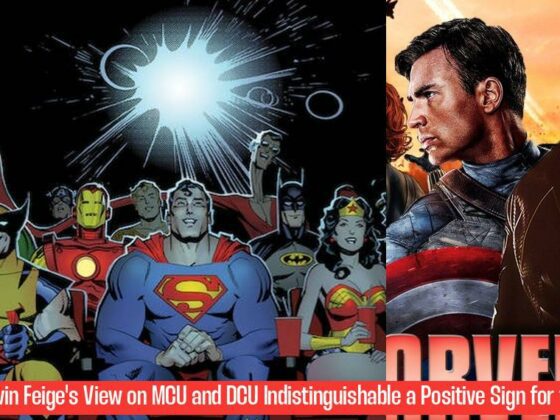Marvel’s New X-Men Comic Plays It Too Safe After One Of The Best Sagas In Its History
The X-Men, Marvel’s beloved group of mutant superheroes, have always been a beacon of hope and a symbol of diversity within the comic book world. Their stories have consistently explored themes of acceptance, prejudice, and the struggle for equality, resonating with readers for generations. The Krakoan Age, a recent era in X-Men comics, marked a significant turning point for the mutant race. This era saw the X-Men establish their own nation, Krakoa, a paradisiacal island where mutants could live freely and finally find a sense of belonging. This groundbreaking storyline was a celebration of mutant culture, a testament to their resilience, and a unique departure from traditional superhero narratives.
The Krakoan Age was a bold and visionary period in X-Men history, pushing the boundaries of what a superhero comic could be. It was a time of experimentation, innovation, and profound social commentary. It was a time when the X-Men were finally in control of their own destiny, a time when they could shape their own future. But every good thing must eventually come to an end, and the Krakoan Age has unfortunately reached its conclusion. Marvel has launched a new X-Men comic series, X-Men: From the Ashes, marking the beginning of a new chapter in the lives of these beloved characters. However, this new series, rather than building on the momentum of the Krakoan Age, seems to be taking a step backward, opting for a more traditional and less daring approach.
Read : Who will be at the helm of Avengers 5?
The new X-Men: From the Ashes comic series, while undoubtedly a fresh start for the team, has been met with some disappointment from fans who had grown accustomed to the innovative and groundbreaking stories of the Krakoan Age. The new series, though promising a fresh direction, feels more like a return to the status quo, a familiar and safe approach that lacks the boldness and originality that defined the Krakoan Era. It is as if Marvel, after pushing the boundaries of what an X-Men story could be, has decided to play it safe, neglecting the potential to explore new themes and storylines that could have further revolutionized the X-Men’s narrative.
While the Krakoan Age was a monumental achievement, a period of immense growth and change for the mutant race, the new X-Men series seems hesitant to embrace the full potential of this new era. It feels like a missed opportunity, a chance to continue pushing boundaries and exploring new ideas, lost in the pursuit of familiarity. This shift towards a more traditional approach, while perhaps appealing to a certain segment of the audience, may ultimately alienate some fans who were captivated by the boldness and originality of the Krakoan Age.
The Legacy of Grant Morrison’s New X-Men
To understand the disappointment surrounding the new X-Men series, it’s important to look at the legacy of Grant Morrison’s New X-Men run, which played a pivotal role in shaping the franchise’s future. Morrison’s run, spanning a remarkable 41 issues (#114-156) from 2001 to 2004, was a period of significant creative energy and innovation. It redefined the X-Men’s status quo, introducing groundbreaking concepts, exploring complex themes, and reimagining the mutant race’s place in the Marvel universe.
Morrison’s New X-Men introduced the world to the dangerous and enigmatic Cassandra Nova, a powerful psychic mutant who became a formidable adversary for the X-Men. He delved into the complexities of mutant identity and the nature of reality, challenging readers’ perceptions and pushing the boundaries of superhero storytelling. Morrison’s run was a daring and innovative exploration of the X-Men’s universe, leaving a lasting impact on the franchise and inspiring future creative teams.
The Krakoan Age was, in many ways, a continuation of the spirit of Morrison’s New X-Men. It embraced the idea of mutant self-determination and explored the potential of a society built on mutant values. It was a bold and ambitious vision, a testament to the evolution of the X-Men’s story and their place in the Marvel universe. But unfortunately, the new X-Men series seems to be moving away from this ambitious vision, opting for a more familiar and less challenging approach.
It is understandable that reboots are a common occurrence in superhero comics. Every new creative team brings a fresh perspective and a desire to make their mark on the franchise. However, it is crucial that these reboots do not simply revert to the status quo. The X-Men, with their unique history and complex themes, deserve stories that push the boundaries and challenge the status quo. The Krakoan Age was a testament to the potential of the X-Men to tell stories that are both innovative and meaningful. The new X-Men series, unfortunately, seems to be moving away from this potential, opting for a more familiar and less daring approach.
The Need for Bold Storytelling
In an era of diverse and experimental storytelling, superhero comics have an opportunity to push the boundaries of what they can achieve. The X-Men, as a symbol of diversity and acceptance, have a unique responsibility to lead this charge. The Krakoan Age showed us what the X-Men could achieve when they embraced their potential and dared to be different. The new X-Men series, unfortunately, seems to be falling short of this potential, opting for a more traditional and less challenging approach.
The X-Men, as a symbol of diversity and acceptance, have a unique responsibility to lead this charge. The Krakoan Age showed us what the X-Men could achieve when they embraced their potential and dared to be different. The new X-Men series, unfortunately, seems to be falling short of this potential, opting for a more traditional and less challenging approach. It is important to remember that superhero comics, at their core, are about exploring what it means to be human. The X-Men, with their unique perspective and complex themes, have the potential to tell stories that resonate with readers on a deeper level.
The Krakoan Age was a testament to this potential, a period of innovation and exploration that pushed the boundaries of superhero storytelling. The new X-Men series, unfortunately, seems to be moving away from this potential, opting for a more familiar and less challenging approach. The X-Men deserve stories that challenge the status quo, explore new themes, and push the boundaries of what superhero comics can achieve. The future of the X-Men, and the future of superhero comics as a whole, depends on it.
The Future of the X-Men
The X-Men have always been about more than just superpowers and battles. They’ve been about the struggle for acceptance, the fight for equality, and the search for belonging. The Krakoan Age was a testament to the power of these themes, a period of innovation and exploration that pushed the boundaries of superhero storytelling. The new X-Men series, unfortunately, seems to be moving away from this potential, opting for a more familiar and less challenging approach. It is important for Marvel to remember that the X-Men are not just another superhero team.
They are a symbol of hope for a better future, a testament to the power of diversity and the resilience of the human spirit. The Krakoan Age showed us what the X-Men could achieve when they embraced their potential and dared to be different. The new X-Men series has the potential to continue this legacy, to push the boundaries of superhero storytelling and inspire readers to believe in a better tomorrow. But this potential can only be realized if Marvel is willing to take risks, to embrace the bold and innovative storytelling that defined the Krakoan Age. The future of the X-Men, and the future of superhero comics as a whole, depends on it.
The X-Men are a beacon of hope and a symbol of diversity in a world that often feels divided and uncertain. Their stories have always been about the struggle for acceptance, the fight for equality, and the search for belonging. The Krakoan Age was a testament to the power of these themes, a period of innovation and exploration that pushed the boundaries of superhero storytelling. The new X-Men series has the opportunity to continue this legacy, to build on the foundations laid by the Krakoan Age and create stories that are both entertaining and meaningful. But this potential can only be realized if Marvel is willing to embrace the bold and innovative storytelling that defined the Krakoan Age. The future of the X-Men, and the future of superhero comics as a whole, depends on it.
What was the Krakoan Age in X-Men comics?
The Krakoan Age was a recent era in X-Men comics where the X-Men established their own nation, Krakoa, a paradisiacal island where mutants could live freely and find a sense of belonging.
What is the new X-Men comic series by Marvel?
The new X-Men comic series by Marvel is titled X-Men: From the Ashes, marking the beginning of a new chapter in the lives of the X-Men characters.
How does the new X-Men comic series differ from the Krakoan Age?
The new X-Men: From the Ashes comic series takes a more traditional and less daring approach compared to the innovative and groundbreaking stories of the Krakoan Age, disappointing some fans who were accustomed to the bold narratives.
What is the general sentiment towards the new X-Men comic series?
While the new X-Men series promises a fresh start, it has been met with disappointment from fans who feel it lacks the boldness and originality that defined the Krakoan Era, playing it safe and neglecting the potential for further revolutionizing the X-Men’s narrative.



